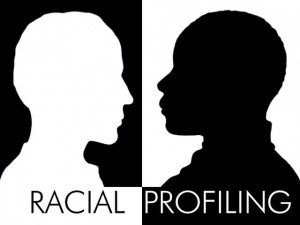The day after Gov. Rick Scott tapped an outside prosecutor to investigate the shooting death of Trayvon Martin and formed a task force to review the state’s stand-your-ground law, a group of Tallahassee criminal defense lawyers moved to shed more light on racial profiling in Florida.
Calling themselves the Roundtable for Justice, the attorneys said Friday they’ll review arrest records for violent felonies in Florida’s 20 judicial circuits. Co-founder Chuck Hobbs said the group will use private funds to collect the data via public records requests to analyze possible racial profiling and misconduct by police and prosecutors.
“We are going to show the world that racial profiling exists in every stage of the criminal game, from arrests to charging decisions to judicial decisions after trials or with plea bargains,” Hobbs said.
The Feb. 26 shooting death of the unarmed Martin by neighborhood-watch volunteer George Zimmerman has spurred shock across the country. Zimmerman, 28, claimed he shot Martin, who was black, in self-defense. He has not been charged.
“[Martin] was trying to retreat,” said attorney Craig Brown, a member of Roundtable for Justice. “He was trying to get away from this man who followed him and shot him in cold blood.”
On Thursday, Scott tapped State Attorney Angela Corey of the 4th Judicial Circuit as special prosecutor, replacing Seminole County’s Norm Wolfinger. The governor also created the Task Force on Citizen Safety and Protection, to be led by Lt. Gov. Jennifer Carroll, who is black, and tasked the panel with reviewing the stand-your-ground law – but only after Corey’s investigation into Martin’s death is done.
Martin, 17, was killed as he walked to the home of his father’s girlfriend in Sanford.
Lawmakers changed the state’s self-defense law in 2005, allowing people to stand their ground and shoot – rather than retreat – if they think they are in danger.
Members of Roundtable for Justice defended that law, but they said it shouldn’t be applied in the Martin case.
“If it had been one of our clients and he had been a black kid [who] stated that he was standing his ground and shooting in self-defense, he would have been arrested and his family would have had to hire us,” said Annabelle Dias, who said she’d litigated stand-your-ground cases going back to 2006. “We’re just concerned that it was racial profiling in failing to arrest Mr. Zimmerman at the appropriate time.”
Hobbs said it will take about nine months to get the arrest records for review and analysis. The group will analyze the data and provide it to the task force, which will not meet until after the investigations into Martin’s death are over.
“The work of preventing another death due to the stand-your-ground law cannot wait until the Trayvon Martin investigation is complete,” Hobbs said.
By Margie Menzel



